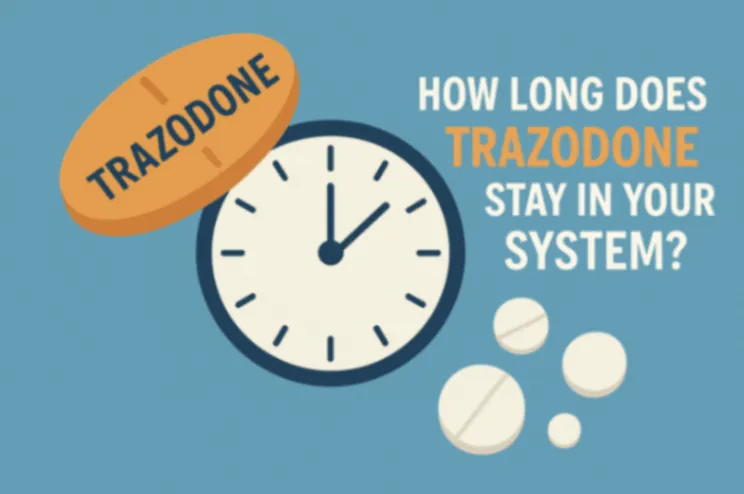Sexual safety is considered to be discussed in terms of behavior, choice of a partner, and such protective measures as condoms. But the second aspect that should not be ignored is the impact that medications might have on sexual health and risk. Whether it is a daily prescription or a specialized therapy, medicines can affect anything, including disease prevention to physical comfort during intercourse. To the health professionals, people should not think of medication as a distinct issue, but work on it along with other forms of safer sex.
Medications can play both protective and complicating roles. Drugs that potentially result either in the reduction of the likelihood of sexually transmitted diseases (STIs) or an enhancement of the likelihood in a worse way (influencing the immune system of the organism, the hormonal level, or even sexual judgment) are divided. Knowing the mechanism of action of these drugs, a person will be able to choose more reasonably by himself and his partner and minimize possible risks to his health.
Preventive Medications in Sexual Safety
The incorporation of preventive drugs like pre-exposure prophylaxis in HIV (or PrEP, as it is usually called) might have been one of the most discussed trends of the last few years. PrEP, when used regularly, has been proven to reduce the risk of being infected by HIV during sex. It is normally prescribed to individuals who are at a higher risk of being exposed, and some of them include individuals in serodiscordant unions, as well as those who have multiple partners. The fact that PrEP does not eliminate the use of a condom means that it is used in addition to the same to give an extra shield.
Post-exposure prophylaxis, known by its abbreviation, PEP, is another crucial preventative step. It is a short course of medication that is consumed shortly after a potential exposure to HIV to prevent infection. The promptness is of paramount importance as PEP needs to be initiated within 72 hours following exposure. It should not be considered a standard approach but an emergency one. With proper usage, these preventive drugs can impact the outcome of sexual health.
Medications That Affect Immunity and Infection Risk
Certain classes of prescription drugs unknowingly make it more likely to be infected due to immunological decreases. Immunosuppressive drugs taken to deal with conditions like autoimmune diseases or organ transplants have the potential to facilitate the establishment of sexually transmitted infections. Physicians usually recommend individuals taking such drugs to be extra careful and point to routine STIs checkups and frequent condom use.
Also, some cancer therapies and chronic corticosteroid use may have the same impact on the immune system. In some instances, the immune system may be lowered even when one is feeling well. Medical practitioners usually emphasize the necessity to discuss these dangers explicitly; thus, one should know about the possible complications and be able to prevent them.
Hormonal Medications and Sexual Risk Perception
Hormonal birth control is established and it's very effective in preventing pregnancy, even though it does not prevent STIs. The doctors tend to remind the patients that the feeling of safety hormonal methods give regarding pregnancy should not substitute other sexually related safety. The most important thing to note in the prevention of STIs, though, is the use of condoms, despite any other means of contraception.
It also has some studies that indicate that sexual desire, mood, and partner choice can be influenced by hormonal changes. Unless these minor effects are accepted, they may translate into more dangerous sexual practices. Health practitioners urge people to be aware of the possible role of their hormones in their decision-making and employ preventive practices regularly.
Antivirals and Antibiotics in Reducing Transmission
The role of antiviral drugs is to minimize the chances of viral transmission, such as herpes or HIV. Indicatively, people with HIV, under treatment with antiretroviral drugs and viral suppression numerous will have practically no danger of passing the infection to their partners through sexual intercourse. The theory is called Undetectable equals Untransmittable (U=U), which has become a breakthrough in sexual health.
On the same note, treatments should include a regular intake of antiviral drugs against herpes to reduce the outbreak and transmission possibility. Antibiotics, in certain instances, are administered to cure bacterial infections, and this in turn reduces the chances of transmitting the infections to others. Although such drugs are useful in controlling infection, physicians recommend barrier methods such as condoms and the use of lubricant properly to reduce friction and damage to tissue, to further reduce the chances of infection spread.
Communication With Healthcare Providers
One of the essential sexual safety elements is keeping constant contact with healthcare providers. Physicians can provide personalized advice as to which drugs can be useful or dangerous given individual health history, sex life, and cohabitation regimens. Having an open dialogue about sexual procedures, sexually transmitted infections examinations, and pharmaceuticals consumption assists in drawing a personal plan.
One should also engage in revision of medications, particularly in cases where there exist alterations in the sexual behaviour, new partners, and new medical conditions. This is one thing that facilitates continuous discourse as a means of ensuring that the drugs are used to facilitate rather than impair sexual health objectives.
A Balanced Approach to Medication and Safer Sex
Medications never work as a panacea and are not free of dangers regarding sexual safety. They are valuable for the prevention and treatment of infection, chronic or the reduction of harm. Meanwhile, they need to be well used and with a due awareness of their limitations.
Through the incorporation of medical advances and the following barrier measures, such as latex usage, with lubricant use, frequent testing, and open discussions with partners and providers, a person can make a wise decision regarding the preservation of sexual health. According to doctors, considering medications as a part of the wider spectrum of well-balanced methods would be the safest approach to remaining involved in intimate relations and health.
लेखक





